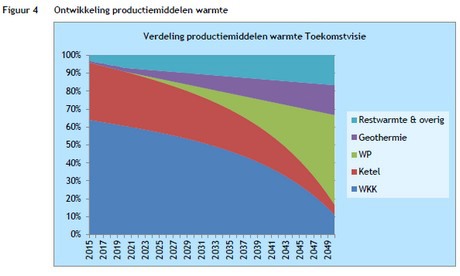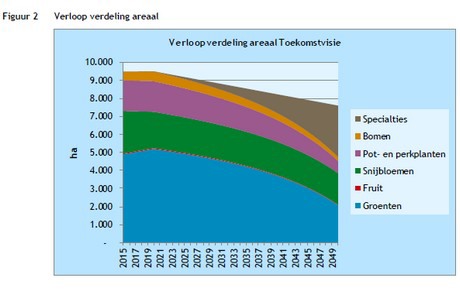
The study "Vision horticulture 2030 climate and energy" has been conducted by CE Delft, commissioned by LTO Glaskracht Nederland and the Ministry of Economic Affairs. The Ministry of Economic Affairs and LTO Glaskracht Nederland have agreed to the Long-term Agreement Energy Greenhouse 2014-2020, to develop a vision for addressing the energy sustainability of the horticultural sector after 2020. In the context of the program Greenhouse as Energy Source, the Ministry of Economic Affairs and LTO Glaskracht Nederland have worked successfully for years on, and led research into, more efficient cultivation methods (The New Cultivation, greenhouses, better lighting, geothermal). As a result the Dutch horticulture industry is one of the most innovative sectors in the area of energy and has a strong lead internationally.

Acreage decrease
The report is based on a significant decrease in the area: 20% to 2050 (7,500 ha). "The reason is that there is now a lot of acreage with outdated greenhouses and the assessment is that they will not all be replaced. More than half of the remaining area (60%) will consist of the cultivation of commodities where a large degree of flexibility can be applied with regard to electricity, heat, production and CO2. The other 40% consists of the cultivation of specialties, products where all-electric greenhouses are dominant.
Cogeneration
The report also looks at the position of CHP. In the coming years, there are still many opportunities for the use of CHP. The opportunities for the sustainable Bio-CHP are, however, highly dependent on various developments. The availability and cost of suitable biomass is a very important one. But also developing a market model in which the flexibility available to the grower gets a value by which the cost of the durability can be covered is necessary.
The search for clusters of companies (and other sectors) can contribute to an opportunity for a richer rollout of sustainable heat and power.
Read the report on the website of CE Delft.
